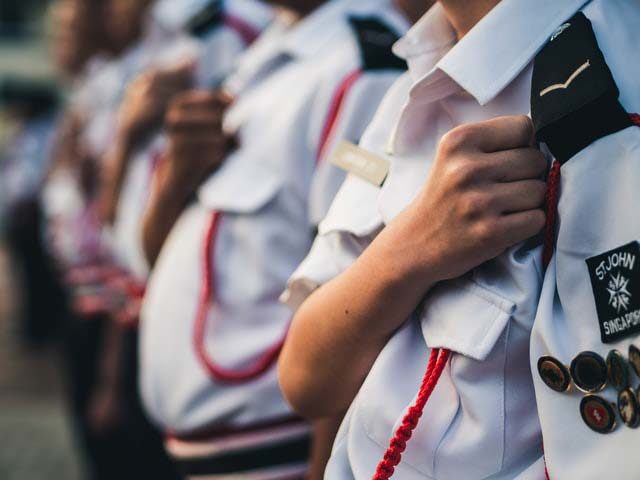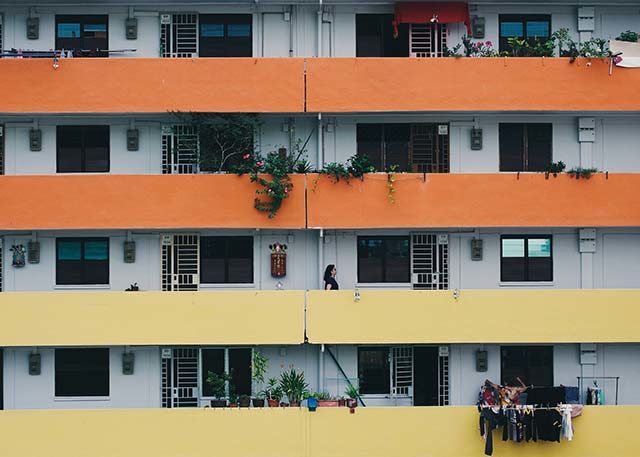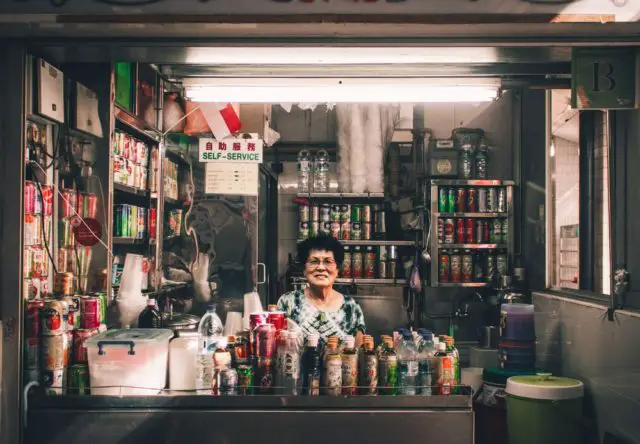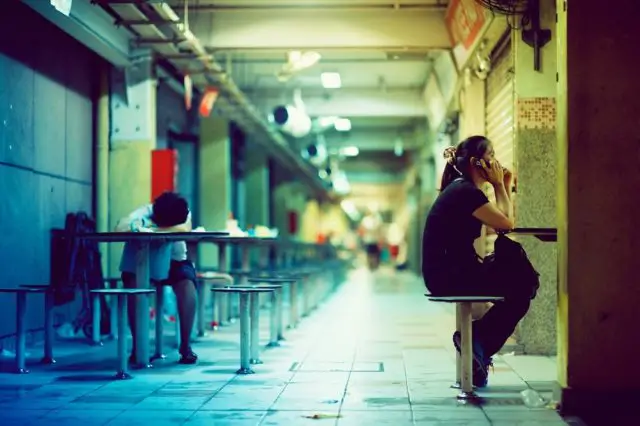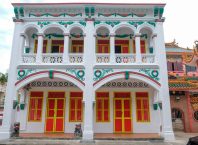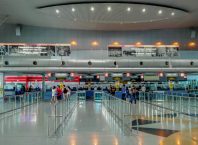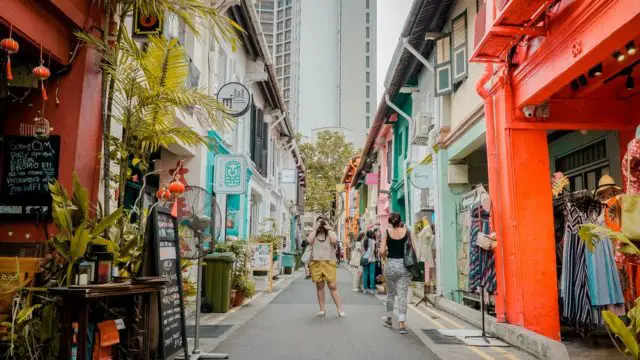
Are you going to Singapore soon and don’t know what to expect? Fantastic, you have landed on the right page, then.
We have put together a list of essential things to know before going to Singapore to prepare you to hit the ground running. We tried to highlight some historical facts, important societal and political issues, and we have given useful information on what you should know before you go and how Singapore is like for a holiday.
For more Singapore travel information, you can check out our guide to the best time to visit Singapore and this essential one-day in Singapore itinerary.
And please, don’t forget to read this article on crossing the Malaysian-Singaporean border, or this review on flying from Penang to Singapore. You may also check this article out if you are considering flying from Europe to Singapore at a very cheap price.
1Carrying Drugs means Death
In its famous 1993 piece for Wired magazine, American sci-fi writer William Gibson described Singapore as a “Disneyland with the Death Penalty”. The city-state carries extremely severe measures against drug traffickers: as late as 2018, 13 people were executed.
The most common cause of capital punishment in Singapore is drug trafficking, and you’d be putting yourself at risk if you even remotely considered touching drugs while visiting Singapore. Please understand that if thirty grams of cocaine and half a kilo of cannabis carry the death sentence, even a small dose for personal use can result in hefty jail terms or, if you are very lucky, a huge fine. Remember that if immigration entry cards carry a bold “death to drug traffickers” across them, there won’t be much error tolerance.
2Singapore is a Chinese-dominated Multi-ethnic Society
As Chinese Singaporeans constitute 76.2% of the city-state’s population, followed by 15% Malays and 7.4% Indian, you will inevitably encounter Chinese cultural habits and taboos while visiting the city-state.
For example, if you’re invited for dinner by Chinese friends or business acquaintances, leave some food on your plate to indicate that your host’s generosity is so great you can’t eat another bite. At a formal meal, rice will often be served among the final dishes rather than at the same time as the meat and vegetable dishes. Don’t pile your plate full of rice at the end of the meal, or your hosts may think they didn’t provide you with enough food.
There’s no shame in asking for a knife and fork instead of chopsticks. These should never be dunked sticking upwards into your rice bowl, as they would look like a funerary urn. This is also the reason why you won’t find the numbers 4 and 14 inside most elevators: “four”, pronounced “si” in Mandarin, means “death”, and the Chinese can be very superstitious.
At last, consider the concept of “face”: a Chinese guest always prefers to avoid confrontational speech or behavior to maintain his environment calm and quiet, so don’t be surprised if touchy subjects or direct questions are left unanswered or shrugged off with a vacuous smile.
3Singapore and Politics
The Republic of Singapore is a sovereign island city-state situated 137 kilometers north of the equator, founded in 1819 by Sir Stamford Raffles as a trading post of the British India Company. It came under British control in 1858 as a crown colony known as the Straits Settlements. Occupied by the Japanese during World War II and again by Britain until it joined the short-lived federation of Malaya in 1963, Singapore has been a fully sovereign state since 1965.
The President is the head of state, voted for a renewable six-year term, while the Prime Minister is the head of government appointed by the President to command the majority of Parliament.
4 Singapore’s Big Boss
Lee Kuan Yew, the first Prime Minister of Singapore, governed for three decades from 1959 to 1990 and is recognized as the nation’s founding father. He presided over many of Singapore’s advancements, propelling the nation from a third-world backwater to first-world country and raising the GDP from $1,240 in 1959 to $18,437 in 1990. Lee remained involved in Singapore’s politics until his death from pneumonia in 2015.
Lee’s rule was, however, criticized for exercising media control, limiting public protests, and bringing libel suits against political opponents. He argued that it was all necessary to create political stability, which, together with the rule of law, was essential for Singapore’s economic progress. Not surprisingly, the People’s Action Party (PAP) has dominated the nation’s politics since Lee Kuan Yew came into power in 1959. Since 2004, his legacy continues with Singapore’s third PM and leader of the PAP, Lee Hsien Loong — Lee Kwan Yew’s eldest son — and the Worker’s Party constitutes the main (albeit pretty small) opposition party in Parliament.
5A Tightly-Controlled Nation
State control seems to be the innuendo in Singapore, where the Ministry of Home Affairs Internal Security Department still enforces the Internal Security Act (ISA). This draconian law was created under British Colonial rule to counter espionage, international terrorism, threats to racial and religious harmony, and subversion. The ISA permits indefinite detention without formal charges or recourse to trial and is used to imprison opponents of the ruling political party.
Coupled with the ISA, the Sedition Act prevents seditious actions and speech and the printing, publication, sale, distribution, reproduction, and import of seditious publications. The decision of what is “seditious”, unfortunately, is reserved to the discretion of Singapore’s government.
6Ethnic Diversity
The other side of Singapore’s coin is a remarkably peaceful multi-ethnic society where English acts as a common lingo. The city-state is composed of a majority of citizens of Chinese descent, followed by Malay and Indians. A large number of working Western expatriates, and an even bigger number of foreign immigrant workers, add to the mix. Besides Southeast Asians, many Indians, Pakistanis, and Middle Eastern nationals live and work in Singapore, contributing to creating a dynamic workforce and multicultural society.
7Prepare for Culture Shock
Following from the point above, Singapore’s multi-ethnic population has brought several diverse cultural norms into the city-state’s mix. It’s impossible to master them correctly without living in the country. Still, there are certain basic things that every first-time visitor should know to avoid embarrassing situations.
For starters, don’t use your left hand for greeting, gesturing, giving something to, or eating with a Malay, Indonesian, or Indian person—it’s the hand traditionally used for toiletry purposes. Refrain from kissing or touching the opposite sex, as some communities might be offended. Note that it’s common for men, particularly from the Indian subcontinent, to hold hands or interact affectionately.
Hindus are often vegetarian, Muslims don’t eat pork and must abide by strict food preparation guidelines, and some Chinese may be devout Buddhist vegetarians. Check on dietary preferences before dining among multicultural Singaporeans.
It’s mandatory that you remove your shoes in places of worship. You should cover your arms and legs in Indian temples and Muslim mosques. For women, a head covering is advisable. Use extreme caution when visiting mosques, perhaps seeking the permission of locals or the nearest person in authority to enter and then asking where you may walk and what you may do. There may be areas where you aren’t permitted to go, particularly if you’re a woman.
8Singapore and Human Rights
Even though Singapore is a very developed nation and one of the five founding members of ASEAN, in 2018 it still ranked 151st out of 180 nations in the Worldwide Press Freedom Index.
Singapore also employs mandatory corporal punishment in the form of severe caning on the bare buttocks for some 30 offenses, ordered in combination with imprisonment, and enforces the death penalty by hanging for premeditated and aggravated murder and the possession or trafficking of more than 14g of heroin and 500g of cannabis. About 400 criminals were hanged in Singapore between 1991 and 2003 — one of the world’s highest execution rates considered the country’s small population.
9Homosexuality is Still Banned in Singapore
It’s not just the press and the death penalty for drug offenses: even LGBTQ persons in Singapore face serious challenges, and no anti-discrimination laws still exist to protect them. If, on the one hand, gay-rights activists have participated in the annual parade Pink Dot SG without government interference since 2009, same-sex relationships are still not recognized under Singapore law, and consensual sexual activity and adoption of children by same-sex couples are illegal.
10Restrictions on freedom of speech/not LGBTQ friendly
Despite development, Singapore remains a conservative society, and its government has restricted freedom of speech and the press and limited other civil and political rights. Arts are affected, too: Singapore was famous for its “moral panics” against various things that included, among others, heavy metal music, and it’s easy for international performers to be banned from entering Singapore.
This conservatism unfortunately also extends to LGBTQ rights: even after successful street demonstrations like Pink Dot, homosexuality is still illegal in Singapore — beware of bringing up the topic in public, offending anyone’s sensibilities, or putting someone in danger by expressing your views.
11Singapore’s Popular Culture and Moral Panics
The city-state supports performances and art festivals throughout the year, but the more independent voices are constantly suffocated. This could be a consequence of Singapore’s fear of Western-derived, drug-related subcultures since the 1970s, when “Hippism” was banned. Having long hair was considered illegal, and every hippie-looking person crossing in from Malaysia would get the dreaded “Suspected Hippie in Transit” (funnily enough, written as “S.H.I.T.”) stamp in his passport.
This fear occurred in the 1980s with the global rise of heavy metal music, the dreaded antithesis to Singapore’s ideal of industry and order. In the 1990s, all forms of pogo and slam-dancing were banned. When Metallica played the city-state for the first time in 1992 after a riotous show in Jakarta, Indonesia, 150 police officers were stationed outside the venue.
Censorship and control seemed to have eased off in the noughties, but in March 2019, the Ministry of Home Affairs canceled a show by Swedish black metal band Watain on the grounds of “security concerns”. It’s not just a problem with underground music: a month later, Singapore’s parliament declared the lyrics of songs by Lady Gaga and Ariana Grande offensive to the racial and religious harmony of the city-state.
12Time Your Drinking Wisely
In 2015, Singapore implemented liquor control laws to minimize public discomfort. As a result, the consumption of alcohol is banned in all public places from 10.30 pm to 7 am. Retail shops also can’t sell takeaway alcohol from 10.30 pm to 7 am.
Because of their nature as food and drink hotspots, Geylang and Little India districts have even stricter laws. Public drinking is not allowed from 7 am on Saturdays to 7 am on Mondays and from 7 pm on the eve of a public holiday to 7 am after the holiday. On weekends, shops in these two areas cannot sell takeaway alcohol from 7 pm onwards.
Please note that “public places” does not include licensed pubs, restaurants, etc., where you can drink whenever you want.
13Call People you Don’t Know “uncle/auntie” as a Sign of Respect
Calling an elder person “uncle” or “auntie” is a sign of respect and friendliness. Don’t be surprised if younger Singaporeans will refer to you as an “uncle”, too. Among people of Malay descent, calling a male acquaintance older than you “abang”, meaning “elder brother”, is also casual and appreciated.
14Singaporeans are a Bunch of Proud People
Don’t publicly criticize Singapore, its politics, or its leaders, and refrain from jokes about them unless you’re sure of your company—Singaporeans can joke all they want, but you’re an outsider and a guest. Share your opinions only when asked and, if harmful, in a gentle manner.
15It’s Best if You Don’t Get Caught Doing Illegal Stuff in Singapore
Smoking is not permitted in public service vehicles or most buildings. You can be fined up to S$1,000 for smoking in prohibited areas. Most restaurants and some bars have outdoor terrace areas where you can light up.
Don’t litter: it’s against the law, and you can be fined S$1,000. Chewing gum stuck in train doors was blamed for the shutdown of the subway system more than ten years ago, and as a result, the government banned it from being sold in Singapore. You may bring it in for personal use, but dispose of it properly.
In Singapore, jaywalking, or crossing the road outside of white stripes is another offense. A fine of $50 is payable for the first offense, and repeat offenders can be charged up to $1000 and a jail term of 3 months.
16Speaking Singlish
Singlish is a local lingo that first emerged after Singapore’s independence in 1965 when English was decreed the nation’s official language. Singlish is casual, local, and unique: in 2016, nineteen Singlish words were added to the Oxford English Dictionary.
In brief, Singlish shortens words and sentences, repeats for emphasis (“ok ok” is classic), or adopts English words and turns them into something else (”to whack” becomes “to tuck into a meal” or “do something recklessly”). For starters, add a “lah” or “loh” at the end of a sentence, giving it a more emphatic, fun meaning.
17Can I drink the water in Singapore?
Tap water in Singapore is safe for drinking but can sometimes taste poorly due to chlorination. Still, it’s one of the few Southeast Asian countries where you actually CAN drink the water straight from the tap, and most Singaporeans certainly do.
18Can I haggle in Singapore?
In Singapore, prices are almost always fixed, even in Chinatown and markets, and there’s not much room for haggling like one does in other Southeast Asian countries. If you decide to do it, be firm but polite, and never slash the price too much.
19Eco-friendly Island
Singapore ranks fourteenth globally and first in Asia on the Environmental Performance Index. Unfortunately, its neighbors are lagging behind.
There have been many eco-friendly initiatives in Singapore, such as limiting the amount of energy used in both residential and commercial apartments to limit the emission of greenhouse gases; the building of innovative, modern eco-friendly structures like the Canopy Park; and the introduction of the Green Mark scheme in 2005, which rates buildings with respect to their impact on the environment.



